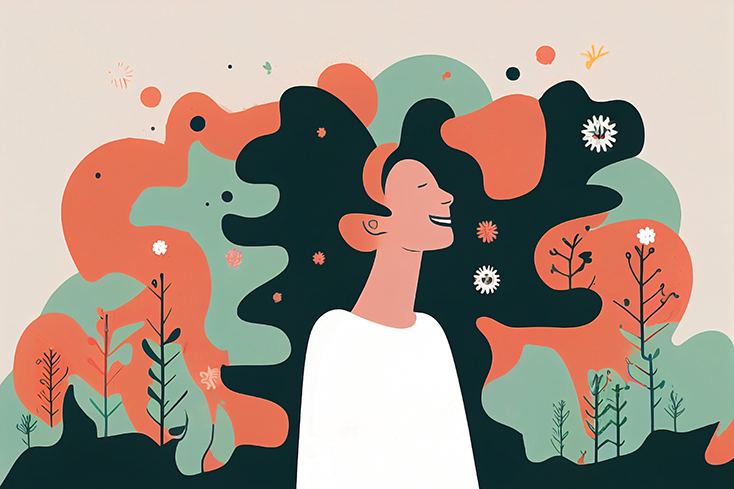by Shagun Jain
Aging is often a time of transition, and the changes that come about at this stage can affect your mental health. While some older adults thrive in their retirement years, others face more challenges with mental health and aging. As we go through different stages of life, our mental health can be influenced by various factors. In our younger years, like college, we often experience new challenges and stressors. It’s great that you’re focused on your goals and seeking support when needed. As we enter adulthood, responsibilities may increase, and we may face new pressures related to career, relationships, and family. It’s important to find a balance and prioritize self-care to maintain good mental health. As we move into middle age, there may be additional stressors like work-life balance, caring for aging parents, and managing our own health. It’s crucial to take time for ourselves and seek support from loved ones or professionals if needed.
In later life, mental health can be influenced by factors such as retirement, loss of loved ones, and physical health changes. Staying socially engaged, pursuing hobbies, and maintaining a positive mindset can greatly impact mental well-being.
As you get older, you may find fewer and fewer opportunities to connect with your loved ones and the broader community. Many people find meaningful social connections through their workplace, but you may lose that social outlet after you retire. If you have chronic pain or physical health challenges, it may be difficult to get out of the house and participate in social activities. Loneliness is a particularly big problem for seniors who live alone and don’t have family nearby.
It is both a cause and a symptom of depression in seniors. When older adults don’t have opportunities to find joy, fulfillment, and purpose in their day-to-day lives, they may start to feel depressed about aging. At the same time, depression can cause further issues with your sense of purpose or self-worth.
Trying to navigate life with pain or other physical symptoms can be extremely difficult and mentally taxing. Tasks that used to feel simple may now take a great deal of effort, which leaves you feeling physically and emotionally exhausted. Depression, anxiety, and other psychological concerns are alarmingly common among people of all ages with chronic pain.
Chronic pain and other physical health problems can take an emotional toll as they can make it more difficult to engage in your daily activities. However, certain conditions can also have a direct impact on your mental health.
Your later years can be a beautiful time to connect with family and reflect on your life, but they can also be a source of fear and anxiety for some seniors. Aging brings about a lot of uncertainty, and this can take an emotional toll.
Bereavement affects people of all ages, but loss often becomes more common as you get older. The loss of a spouse, sibling, friend, or any other loved one can be incredibly painful. After a lifetime of knowing and loving the person, you have to adjust to a new life without them.
Feelings of depression and hopelessness after a loss are a normal part of the grieving process, so bereavement is not considered a mental health disorder. This is still an extremely difficult experience, though, and some seniors struggle with lasting emotional effects for years after a loss.
Remember, mental health is unique to everyone, and it’s important to seek help if you’re ever feeling overwhelmed. Take care of yourself.
